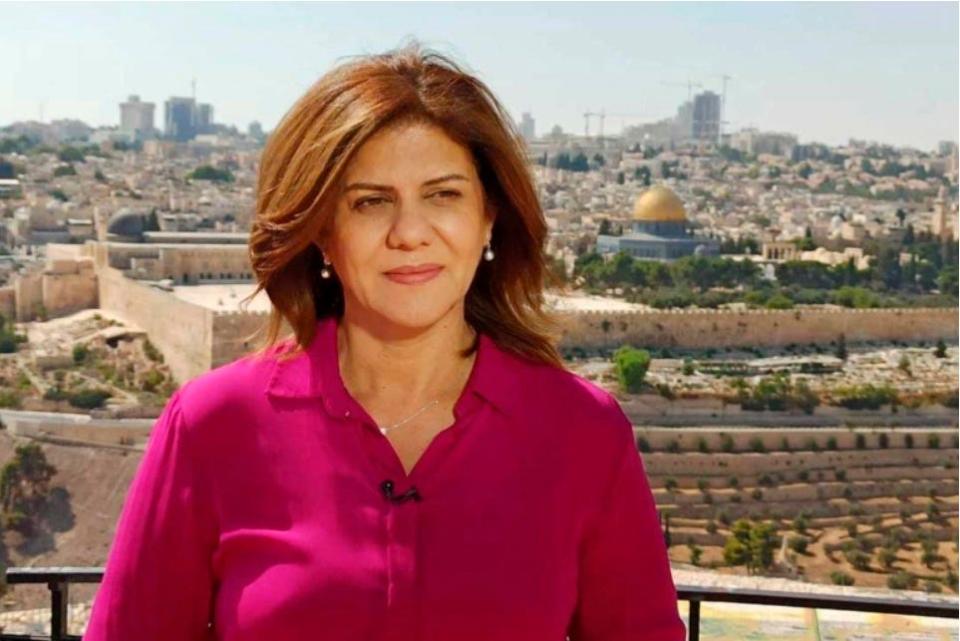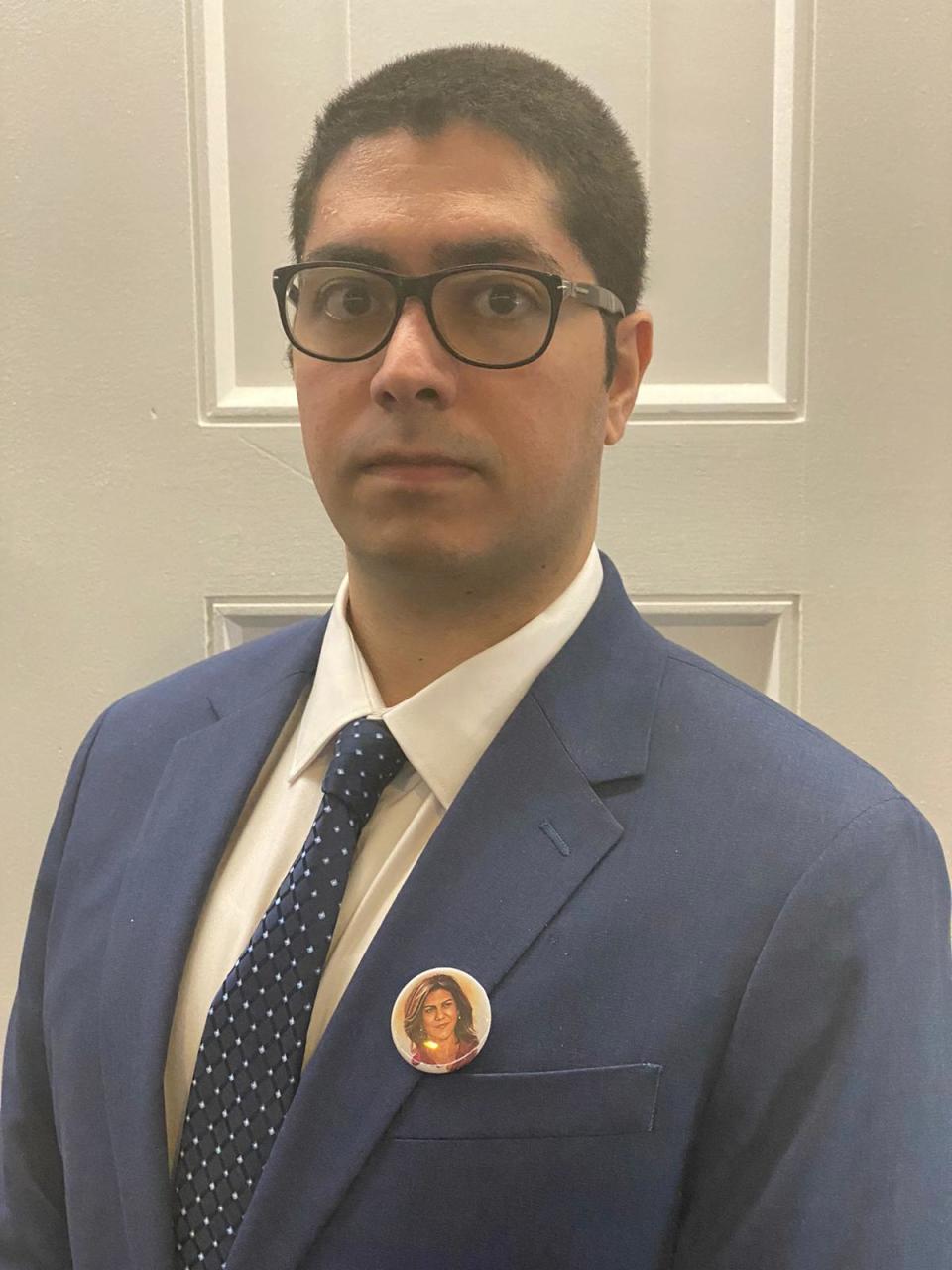Was Palestinian American journalist killed by Israeli soldiers? US must investigate.
- Oops!Something went wrong.Please try again later.
- Oops!Something went wrong.Please try again later.
When she was shot in the head in the occupied West Bank in May, veteran Palestinian American journalist Shireen Abu Akleh, a household name in the Arab world, was wearing a bulletproof jacket with the word "PRESS" printed in large block letters.
At her funeral in Jerusalem, Israeli police beat pallbearers with batons.
The Biden administration has tried to sidestep the issue of why she was shot. Numerous investigations point to Israeli culpability:
Investigations by the United Nations, The Associated Press, The Washington Post, CNN and The New York Times have all lent significant credibility to arguments made by the Palestinian Authority and the family of the Al Jazeera journalist that she was likely shot by Israeli forces.
On July 4, the State Department issued a statement agreeing the bullet appears to have been fired from the Israeli side, but said it was unable to determine whether the shot was fired intentionally – as if a bullet, and not video or eyewitness testimony, were the only evidence available to investigators.

Journalist's family met Washington officials Tuesday
The fight to save local journalism: Local newspapers are shrinking or disappearing. Congress must act.
President Joe Biden didn't meet with the journalist's family when he was in Israel recently. Instead, U.S. Secretary of State Antony Blinken invited Abu Akleh's family to come to Washington to discuss the issue, which they did on Tuesday.
USA TODAY spoke with her nephew, 28-year-old Victor Abu Akleh, immediately after the family's visit with members of Congress and Blinken. He fought back tears as he tried to recount what the meetings have been like – and who his aunt was. His conversation with Editorial Board member Carli Pierson has been lightly edited for length and clarity.

When you came to these meetings, what were you hoping for and what did you get?
We were hoping to get better answers to what they're doing to get Shireen justice, to hold those responsible, not just accountable, for her death.
We were also hoping they could rectify the statement they released on July 4th which stated that the shots were most likely from IDF (Israel Defense Forces) side but that it didn't seem intentional. ... They preemptively determined the intent without conducting a criminal investigation. So, one of my questions to Blinken was, "How did you come to that conclusion?" His answer to me was, "They couldn't determine intent."
We ended up hearing the same rhetoric that they said in the July 4th statement, and being empathetic with us. Part of it felt like a show, like they just wanted to get this meeting over with us and be done with it so they could say, "We met with the family."
We are hoping for an independent American investigation so we can get better answers.
'Why did I walk away and do nothing?': As an Asian bystander at an anti-Asian crime, why did I do nothing? Here's what experts say.
Tell me about your meetings with members of Congress?
We met with Rep. Rashida Tlaib (D-Mich.) and Rep. Betty McCollum (D-Minn.). They gave us their full support and echoed our frustrations and said they are doing the best they can to move forward with the case.
That meant a lot to us. It felt like someone was with us.
Monkeypox is a 'global emergency': US needs to step up, says former Surgeon General Jerome Adams.
What do you want us to know about your aunt?
What she was doing for the Palestinian people ... for us it is hard to be heard. She was giving a voice to the voiceless. As a journalist you know you are doing your best to get the truth out and for them to just take it away ...
(The Palestinians are) constantly dehumanized. They're not viewed as people. They're classified as terrorists. There's no information about the struggles they go through: The day-to-day, how difficult it is to get to work. All the checkpoints people have to pass. All the humiliations they have to go through. It's very hard.
That is what she showed. She wanted the Palestinians to be able to live a normal life, and that is what she was working toward. It scared them and they had to shut her up.
Carli Pierson, a New York licensed attorney, is an opinion writer with USA TODAY, and a member of the USA TODAY Editorial Board. Follow her on Twitter: @CarliPiersonEsq
You can read diverse opinions from our Board of Contributors and other writers on the Opinion front page, on Twitter @usatodayopinion and in our daily Opinion newsletter. To respond to a column, submit a comment to letters@usatoday.com.
This article originally appeared on USA TODAY: Al Jazeera journalist killed: Shireen Abu Akleh's family wants action

